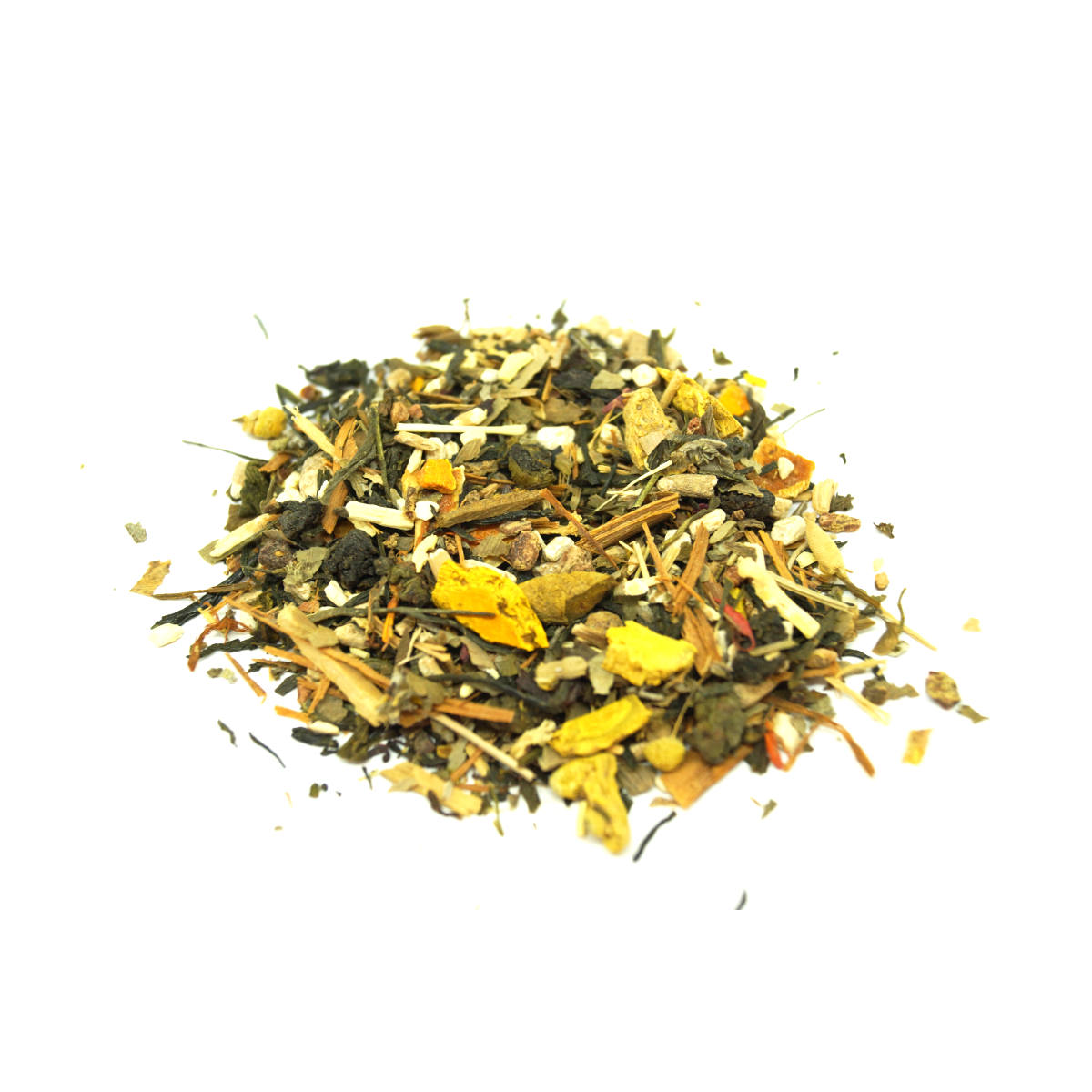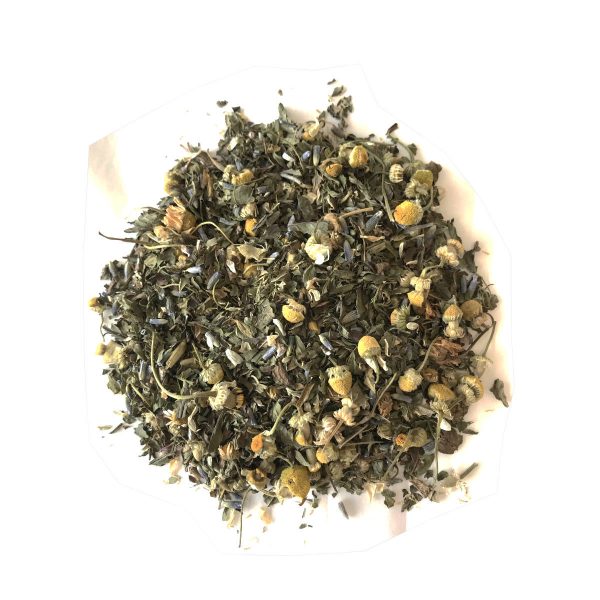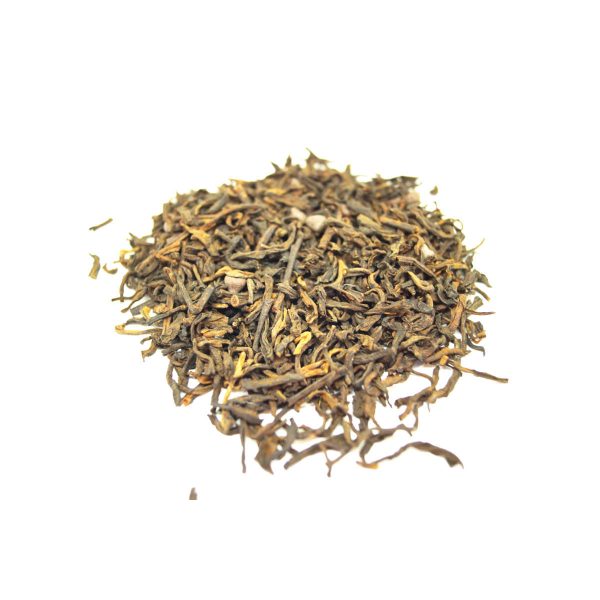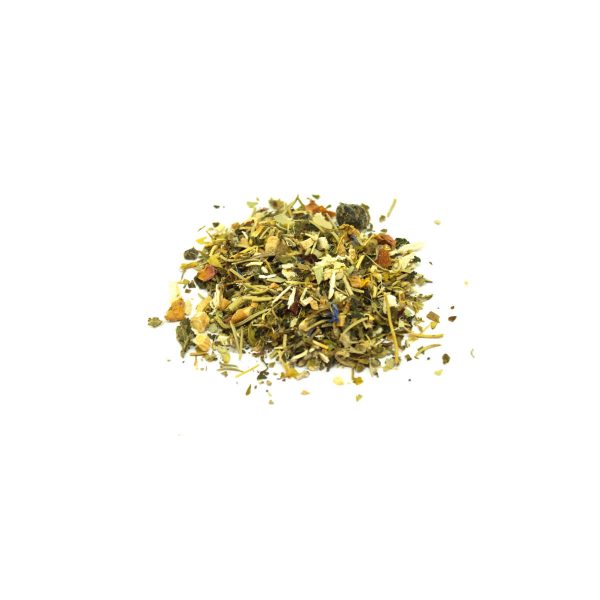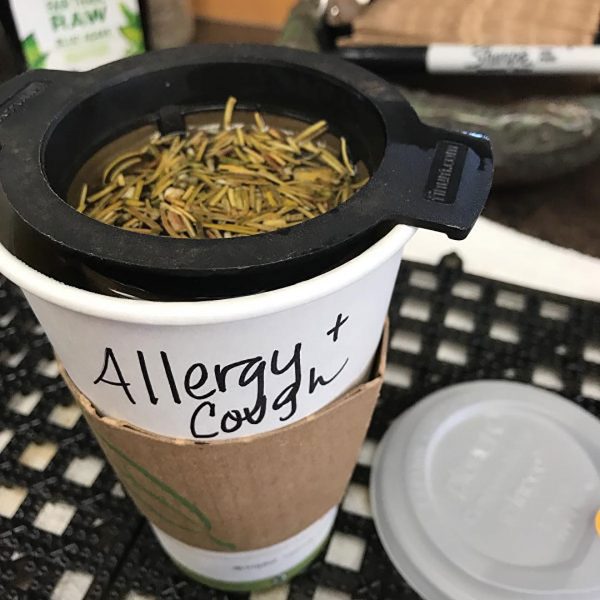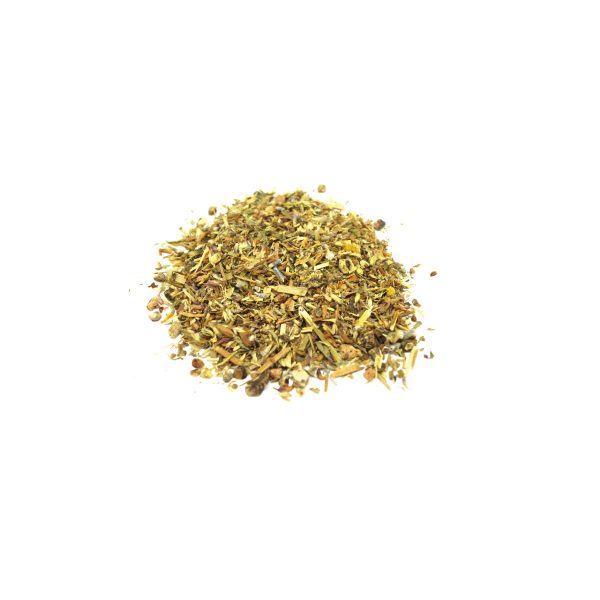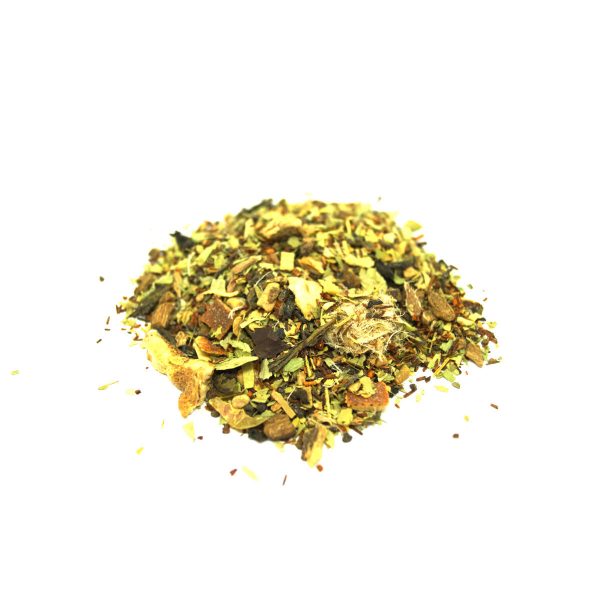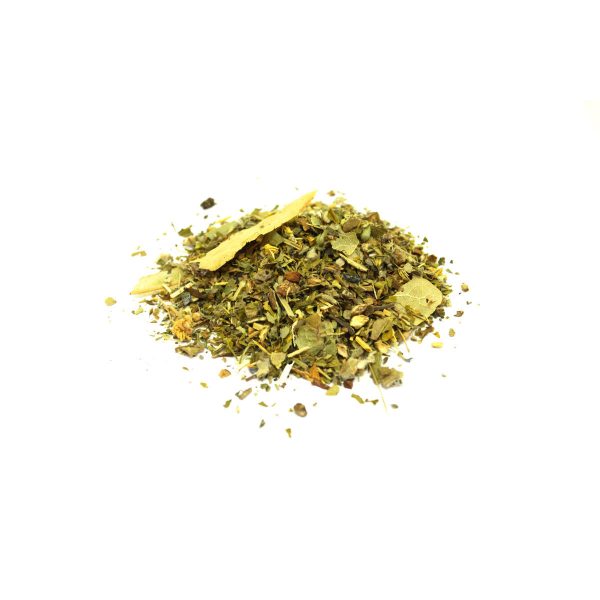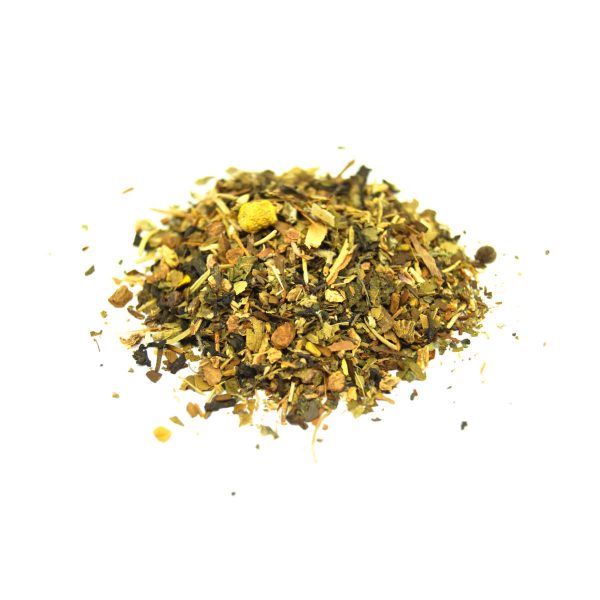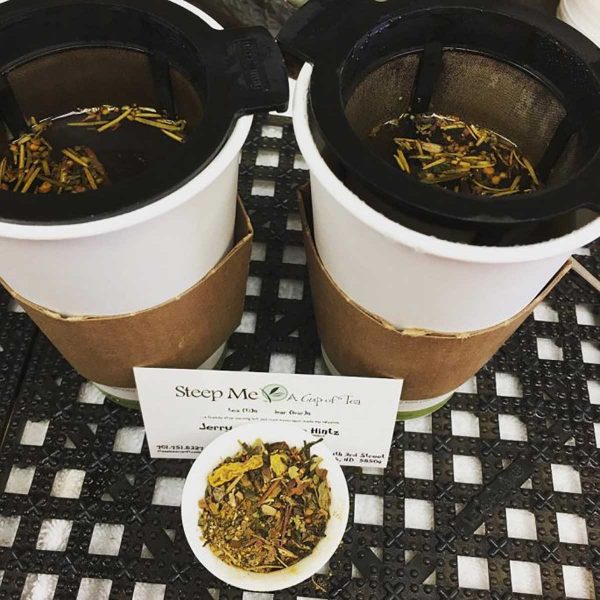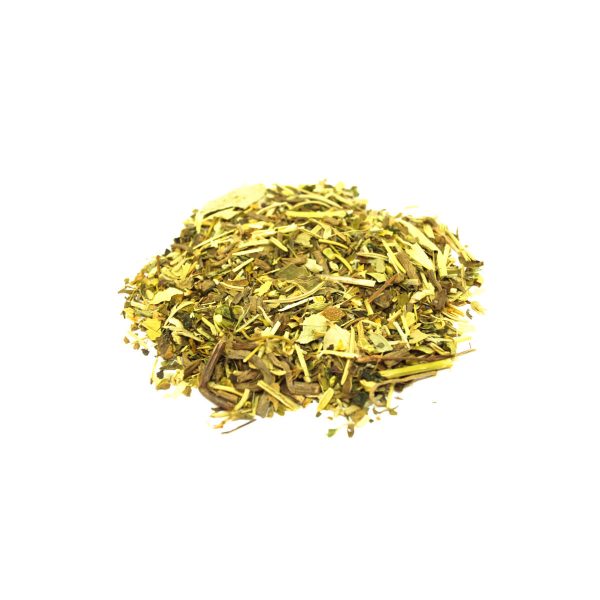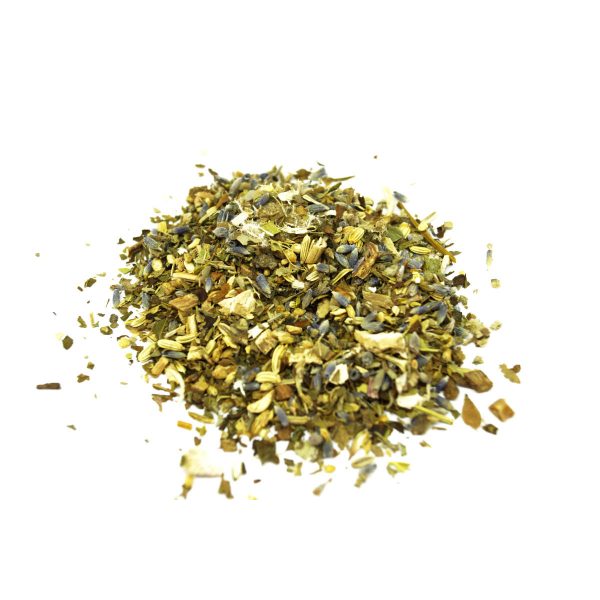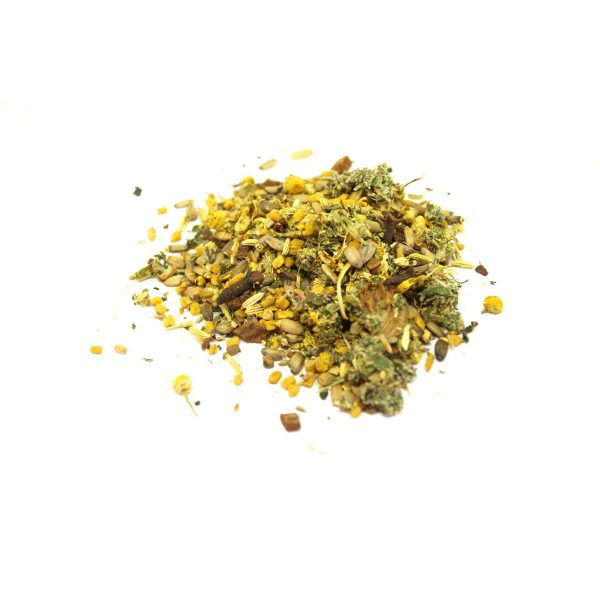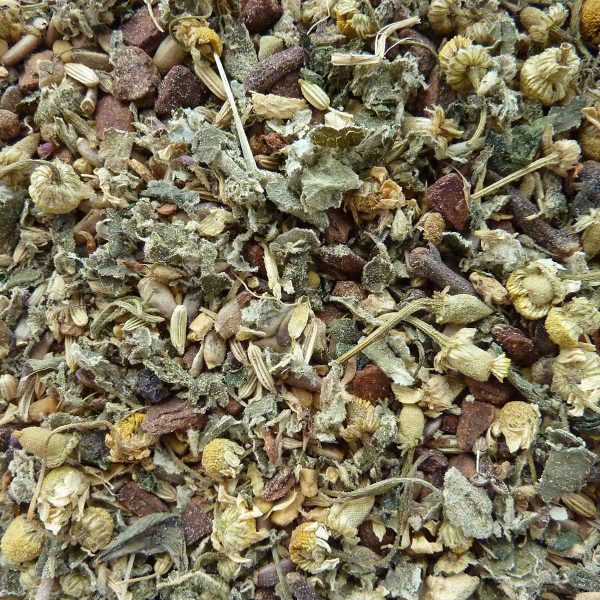With over 400 different kinds of loose tea that will exceed all tea lover’s expectations. You’re sure to find something you will love! All handcrafted by us in North Dakota.
Description
Blender’s Notes Alzheimer’s:
Steep Me Self-Help Tea combinations are a wonderful way to get health benefits outside of the standard tea leaf. This combination of herbs has come about with the long and extensive research into how Alzheimer’s has evolved and the ability to diagnose early. Plus, this combination of herbs works well in prevention of this debilitating disease and keeping the brain healthy and strong while helping to enhance mood stability, rest, and energy levels. These herbs will provide nutrition and are useful for the treatment of complications that may result from this diagnosis.
Alzheimer’s disease is a brain disorder that gets worse over time. It is characterized by changes in the brain that lead to deposits of certain proteins. Alzheimer’s disease causes the brain to shrink and brain cells to eventually die. Alzheimer’s disease is the most common cause of dementia — a gradual decline in memory, thinking, behavior and social skills. These changes affect a person’s ability to function. About 6.5 million people in the United States age 65 and older live with Alzheimer’s disease. Among them, more than 70% are 75 years old and older. Of the about 55 million people worldwide with dementia, 60% to 70% are estimated to have Alzheimer’s disease. The early signs of the disease include forgetting recent events or conversations. Over time, it progresses to serious memory problems and loss of the ability to perform everyday tasks. Alzheimer’s disease causes difficulty concentrating and thinking, especially about abstract concepts such as numbers. Alzheimer’s disease causes a decline in the ability to make sensible decisions and judgments in everyday situations. Routine activities that require completing steps in order become a struggle. This may include planning and cooking a meal or playing a favorite game. Eventually, people with advanced Alzheimer’s disease forget how to do basic tasks such as dressing and bathing. Alzheimer’s disease – Symptoms and causes – Mayo Clinic
We based this tea on high quality Chinese Ti Kuan Yin Oolong and Japanese Gyokuro Green tea because drinking at least one cup a day, yielded the most brain health benefits. Oolong tea may help reduce Alzheimer’s risk by protecting brain cells from oxidative stress and beta‑amyloid toxicity, thanks to its rich antioxidant and neuroprotective compounds. Regular tea drinking (including oolong) has been linked to lower dementia incidence, even in people genetically predisposed to Alzheimer’s. Frequently Oolong tea drinkers had up to a 50% lower risk of dementia, with even stronger protection (up to 86%) in those carrying the APOE4 gene variant, a major Alzheimer’s risk factor. Oolong tea contains catechins such as gallic acid, epicatechin gallate, and epigallocatechin gallate (EGCG). These compounds can neutralize harmful free radicals and bind to beta‑amyloid proteins, reducing their toxicity to hippocampal neurons. In Oolong Tea, the L‑theanine helps regulate neurotransmitters and brain activity, supporting calm focus and potentially protecting against neurodegeneration and the flavonoids in oolong tea reduce neuroinflammation, which is a major driver of Alzheimer’s progression. In addition to Oolong, the Japanese green tea we included may help protect against Alzheimer’s by reducing brain lesions – fewer cerebral white matter lesions, which are strongly associated with dementia risk, lowering beta‑amyloid buildup, and supporting blood flow to the brain. Regular consumption has been linked to fewer dementia‑related changes in older adults. The major antioxidant in Japanese Green Tea, EGCG (Epigallocatechin gallate prevents beta‑amyloid plaques from forming, break down existing plaques and protects neurons from oxidative stress. Green tea lowers blood pressure and improves circulation, which indirectly reduces dementia risk since vascular health is closely tied to cognitive decline. Steep Me Medicinal Mushrooms have been included because they show promising neuroprotective effects for Alzheimer’s disease by stimulating nerve growth, reducing oxidative stress, and slowing cognitive decline. These mushrooms stimulate Nerve Growth Factor (NGF) via compounds called hericenones and erinacines, are rich in ganoderic acids (triterpenes) with strong antioxidant and anti-inflammatory activity, have shown to regenerate damaged axons and enhance myelinization, supporting memory and learning plus also reduces anxiety and improves sleep, indirectly supporting brain resilience. Medicinal Mushrooms used for longevity and immune support, now studied for neuroprotection and cognitive stability. Plus, they enhance antioxidant defenses and reduces neuroinflammation, prevents neuronal cell death and memory loss and can really boost energy and oxygen utilization. Next, we also added Red Raspberry Leaf. It contains tannins, ellagic acid, quercetin, and flavonoids with strong antioxidant properties .which help neutralize free radicals, reducing oxidative stress—a key driver of neurodegeneration. Red Raspberry Leaf contains flavonoids like quercetin and ellagic acid cross the blood-brain barrier and may protect neurons from oxidative damage – which is relevant since oxidative stress accelerates amyloid-beta toxicity. Red Raspberry Leaf has mild nervine effects that may help reduce agitation, anxiety, or restlessness in Alzheimer’s care settings. We also added Cat’s Claw. Cat’s Claw (Uncaria tomentosa) is used today as an herbal treatment for Alzheimer’s Disease by reducing brain inflammation, breaking down amyloid plaques and tau tangles, and protecting neurons from oxidative stress. Cat’s Claw contains alkaloids and polyphenols that calm overactive immune responses in the brain, reducing neuroinflammation—a major driver of Alzheimer’s progression. It scavenges free radicals, protecting neurons from oxidative stress that accelerates cognitive decline. Cat’s Claw can help “detangle” tau protein clusters and reduce amyloid plaque buildup, both hallmark features of Alzheimer’s pathology and boosts white blood cell activity while balancing immune overactivation, supporting systemic resilience that indirectly benefits brain health.
Next, we added Muira Puama. Muira Puama shows promising neuroprotective and memory-enhancing effects that may support Alzheimer’s care. It originally was used as a nerve tonic and “brain energizer.” studies suggest it may improve focus, memory retrieval, and mental clarity by enhancing blood flow and neurotransmitter activity. Plus, it contains alkaloids, flavonoids, and terpenoids with antioxidants and anti-inflammatory properties, protecting neurons from oxidative stress. Muira Puama also acts as an adaptogen, helping the body resist stress, reduce cortisol and improve resilience in stress-induced depression and anxiety. Muira Puama has demonstrated acetylcholinesterase inhibition in cognition-relevant brain areas, like how some Alzheimer’s drugs work plus it has reduced amyloid plaque deposits and protected hippocampal neurons in Alzheimer’s studies. Gingko was added by improving blood flow, protecting neurons from oxidative stress, and stabilizing cognitive function. Ginkgo enhances blood flow to the brain, delivering more oxygen and nutrients to neurons, which supports memory and cognition and Its flavonoids and terpenoids neutralize free radicals, reducing oxidative stress that accelerates Alzheimer’s progression. Ginkgo inhibits acetylcholinesterase, helping preserve acetylcholine levels—a neurotransmitter essential for memory formation. Next is Rhodiola. Rhodiola was added to combat fatigue and stress. Since chronic stress accelerates cognitive decline, its adaptogenic properties may indirectly support Alzheimer’s patients. Compounds like salidroside and rosavin may slow the breakdown of acetylcholine, a neurotransmitter critical for memory, which is depleted in Alzheimer’s and Rhodiola contains polyphenols that neutralize free radicals, protecting neurons from oxidative damage which is a major driver of Alzheimer’s pathology. Lemon Balm was added because it may help with Alzheimer’s by reducing agitation and brain inflammation, and its compounds like rosmarinic acid compound may prevent amyloid‑β proteins from forming fibrils, reducing plaques and tangles that drive Alzheimer’s pathology and can calm irritability and agitation in dementia patients, which is one of its most consistent benefits. Peppermint was also added. Peppermint has an active compound menthol, which shows promise for Alzheimer’s by improving memory, reducing inflammation in the brain, and easing behavioral symptoms. Menthol stimulates the hippocampus, the brain’s memory center, and may improve recall, alertness, and menthol reduced levels of IL-1β, a pro-inflammatory protein linked to brain damage, suggesting peppermint may protect neurons by modulating immune responses. Peppermint is considered an energizer—stimulating the mind while calming nerves and has been reported to reduce agitation, improve concentration, and elevate mood in dementia patients. We also added Egyptian Chamomile Flowers. Egyptian Chamomile Flowers contains antioxidants (like apigenin and rosmarinic acid) that reduce oxidative stress and inflammation in the brain, both central to Alzheimer’s progression Egyptian chamomile has long been used for relaxation. In dementia care, it may help reduce agitation, irritability, and sleep disturbances, which are common symptoms and sleep problems are frequent in Alzheimer’s patients. Chamomile tea has been shown to improve sleep quality in older adults, which may indirectly support cognitive health.
Sage was also added because Sage naturally inhibits acetylcholinesterase, the enzyme that breaks down acetylcholine. This is the same mechanism used by drugs like donepezil (Aricept) and rivastigmine (Exelon). Preserving acetylcholine helps maintain memory and learning and it leads to better memory, attention, and overall cognitive function in individuals with mild to moderate Alzheimer’s. Sage has shown to increase memory performance by 60% and improved attention 2.5‑fold. Sage reduces brain inflammation and scavenges free radicals, protecting neurons from oxidative damage that accelerates Alzheimer’s progression with improvements in mood, reduced anxiety, and less mental fatigue. We also included Ashwagandha. Ashwagandha inhibits the formation of beta‑amyloid plaques, which are toxic to brain cells and boosts a liver protein that helps clear amyloid from the brain, restoring cognitive function. Ashwagandha may increase acetylcholine activity, a neurotransmitter crucial for memory and learning, which is depleted in Alzheimer’s plus as an adaptogen, it lowers cortisol and helps the body adapt to stress. Chronic stress is a known risk factor for dementia progression. Next, we added Super Blue French Lavender. Lavender can improve memory and attention in older adults. Lavender contains compounds like linalool and linalyl acetate, which act on brain receptors to reduce anxiety and promote calmness, and it may help lower stress hormones and boost serotonin/dopamine, creating a mental environment more conducive to memory and learning. Alzheimer’s patients often struggle with insomnia and fragmented sleep. Lavender has been shown to improve deep sleep stages, which are critical for memory consolidation and has been observed to reduce agitation, aggression, and restlessness in dementia care settings. We also included Ginseng. The active compounds in Ginseng of ginsenosides & gintonin have antioxidant, anti-inflammatory, and neuroprotective effects, which may counteract Alzheimer’s-related processes such as oxidative stress, neuroinflammation, and mitochondrial dysfunction and ginseng may reduce amyloid-beta plaque formation and tau protein aggregation, both central to Alzheimer’s pathology and modest improvements in memory, attention, and executive function in dementia patients.
Finally, we included Turmeric Turmeric’s active compound curcumin shows promise for Alzheimer’s disease due to its anti-inflammatory, antioxidant, and anti-amyloid properties. Curcumin inhibits inflammatory enzymes and cytokines (like TNF-alpha), reducing neuroinflammation that contributes to Alzheimer’s, neutralizes free radicals, and reduces oxidative stress, protecting neurons from age-related damage. The curcumin in Turmeric can prevent formation and promote clearance of amyloid plaques, a hallmark of Alzheimer’s pathology and may reduce abnormal tau aggregation, another key driver of neurodegeneration.
Features of Alzheimer’s:
- Leaves can be infused all day! (They will not get bitter)
- Lots of individual flavor based on the ingredients
- All Wildcrafted Herbs
- All Organic where Wildcrafted is not available
- Sweet and Minty ~ Smooth Taste
- Light Colour Cup of Tea
- Full of natural antioxidants and Low in Tannins and Very Hydrating
- Sample Size ~ 1 oz will make 8-10 ~ 16 oz teas
- Sealed Bag ~ 4 oz will make 32-40 ~ 16 oz teas
- Iced Tea ~ Always Double the amount of Tea for the same size cup!
- Per Serving ~ 1 tsp per 6 oz of H2O
- Recommend 3 tsp Per Day – re-steep leaves 2-3 times
- Caffeine: Medium
Ingredients: Steep Me Proprietary Organic and Wildcrafted blend of Chinese Ti Kuan Yin Oolong, Japanese Gyokuro Green, Steep Me Medicinal Mushrooms, Red Raspberry Leaf, Cat’s Claw, Muira Puama, Gingko Biloba, Rhodiola Root, Lemon Balm Leaf, Peppermint Leaf, Egyptian Chamomile Flowers, Sage Leaf, Ashwagandha Root, Super Blue French Lavender, Ginseng Root and Turmeric Root
Alternatively, try our Matcha Green Tea OR Brain Health Micro~Nutrition Capsules OR Mental Sharpness Phyto~Nutrition Tea.
Not Safe for Pregnancy
Not Safe for Breastfeeding
NOTE: This/These claim(s) have/have not been evaluated by the Food and Drug Administration. The products offered by Steep Me Tea Apothecary -Franchisees – Wholesalers – Influencers or SteepMe.com are not intended to treat, cure, or prevent any illness or disease. If you have or suspect that you have a medical problem, consult with your physician for diagnosis or treatment. All gender specific blends are based on Gender Assigned at Birth. Use herbs as per instructions and always watch for any allergic reactions. You should always carefully read all product packaging and labels. Always consult your physician or health care provider before using any herbal products, especially if you have a medical problem. Steep Me Tea Apothecary and SteepMe.com and/or its proprietors assume no liability for any injury, illness or adverse effects caused by the misuse and/or use of the information or products presented
NOTE: When using Teas, Capsules, Tinctures and Micro-Nutrition to help with your ailment ~ please remember this is a marathon ~ we recommend an investment of time of at least 6 months to see positive change. Any gender specific blends are based on gender assigned at birth.
Latest Research from Stir Magazine April 2019
https://read.dmtmag.com/i/1098730-volume-8-number-2/23?m4=
Tea and Alzheimer’s
A recent study convincingly shows preventative and curative properties of EGCG found in high concentrations in green tea, on Alzheimer-like neurodegeneration in mice. It carefully builds on
more than a decade of research on EGCG. Its new and exciting contribution is to open up a pathway towards the use of a combination of today’s botanical compounds in reducing the risk of and spread of this dreadful malady rather than rely on a “magic bullet” pharmaceutical that at best will take ten years and $1.5 billion to develop. The study confirms that the rich store of antioxidants that green tea is packed with has potential medical powers. EGCG – and carrots– are part of prevention and possibly cure. The research study was carried out by a team from the University of California at Berkeley.
“Processed in a facility that also processes food containing milk, egg, fish, peanut, shellfish, soy, tree nuts, wheat, and sesame. May contain traces of milk, egg, fish, peanut, shellfish, soy, tree nuts, wheat, and sesame.”
Additional information
| Weight | 4 oz |
|---|---|
| Size | , , |
Benefits
Tisane or Herbal Tea or Self-Help Tea
- Naturally Caffeine Free – unless specified
- Can be a powerful source of hydration
- Many self-help teas are based on multiple herbs giving a natural solution
- Great taste and can be steeped for long period of time
- Great options for kids who are learning to like tea
- Can taste like anything you want it to
When talking about the many types of tea, Tisane (Herbal Infusion) or Herbal Tea or Self-Help Tea is really not tea at all. It is made like a tea and all the same items are used to make it, but it does not contain the Camellia Sinensis Plant (unless stated), but is simply roots, flowers, leaves, and fruits put together is a combination that is made just like a tea. With that being said…the health benefits of a Tisane or Herbal teas are different. They can vary depending on the ingredients and combination of herbs so there are no blanket health benefits – just depends on the ingredients.
For many, the best part of Tisane or Herbal Tea or Self-Help Tea is the fact that it is caffeine free naturally. Of course there are herbs that can be added to change that. The most popular Herbal teas include Chamomile, Peppermint, Spearmint, and any combination of fruit blends or infusions. Our Self-Help Teas are simply supplemental herbal combinations to aid with an occasional ailment specific to what may be happening in your life. The teas are built to work and are not build with any specific flavorings. The blends are tested to the minimum requirements laid out by Steep Me A Cup of Tea. The taste provided is natural to the herbs present in the blend. No flavorings added.
This/these claim(s) has/have not been evaluated by the Food and Drug Administration. The products offered by Steep Me Tea Apothecary -Franchisees – Wholesalers – Influencers or SteepMe.com are not intended to treat, cure, or prevent any illness or disease. If you have or suspect that you have a medical problem, consult with your physician for diagnosis or treatment. Use herbs as per instructions and always watch for any allergic reactions. You should always carefully read all product packaging and labels. Always consult your physician or health care provider before using any herbal products, especially if you have a medical problem. Steep Me Tea Apothecary and SteepMe.com and/or its proprietors assume no liability for any injury, illness or adverse effects caused by the misuse and/or use of the information or products presented.
Related products
Allergy
From: $16.00
This allergy tea is great for seasonal allergies or for those who suffer long term. Really helps relieve the nasal drip in the back of the throat giving great relief. A great way to clear up your sinuses and help sooth your throat.
Select options
This product has multiple variants. The options may be chosen on the product page
DeStressor
From: $19.00
This is a great blend of herbs to help reduce the stress that is happening in your life. Meant to calm the mind and has a natural antidepressant. This combination of herbs can help solve the symptoms associated with high stress and agitation.
Select options
This product has multiple variants. The options may be chosen on the product page
Happy Belly
From: $14.00
This is a great tea if you need to get going....this stimulant based blend will get the "poo" to "GO"!
Select options
This product has multiple variants. The options may be chosen on the product page
Headache
From: $18.00
Looking for a great alternative for the occasional headache or migraine - having a warm tea can sometimes make the difference. The herbs in this blend can help with some of the symptoms.
Select options
This product has multiple variants. The options may be chosen on the product page
Hitch ~ Women’s Tea ~~ GRAS Certified Ingredients
From: $18.00
A great overall women's health tea - use on a daily basis to maintain health benefits. Not meant for women below the age of 26. This women's tea is a great hormone balancing tea with great response from the users on reduced inflammation and reduced anxiety. A great sweet taste...give it a try today!
Select options
This product has multiple variants. The options may be chosen on the product page
Insomnia Tea
From: $16.00
Select options
This product has multiple variants. The options may be chosen on the product page
Irritable Bowel Syndrome ~ IBS
From: $15.00
Looking for a great help to your Irritable Bowel Syndrome to slow down your going...this is a great blend that has been with us since 2008 to help with all your IBS concerns.
Select options
This product has multiple variants. The options may be chosen on the product page
Milk-In-It ~ Breastfeeding
From: $13.00
A fantastic herbal blend with chai spices and the addition of fennel and fenugreek to help enhance milk production. We have seen huge success rates with this blend.
Select options
This product has multiple variants. The options may be chosen on the product page

